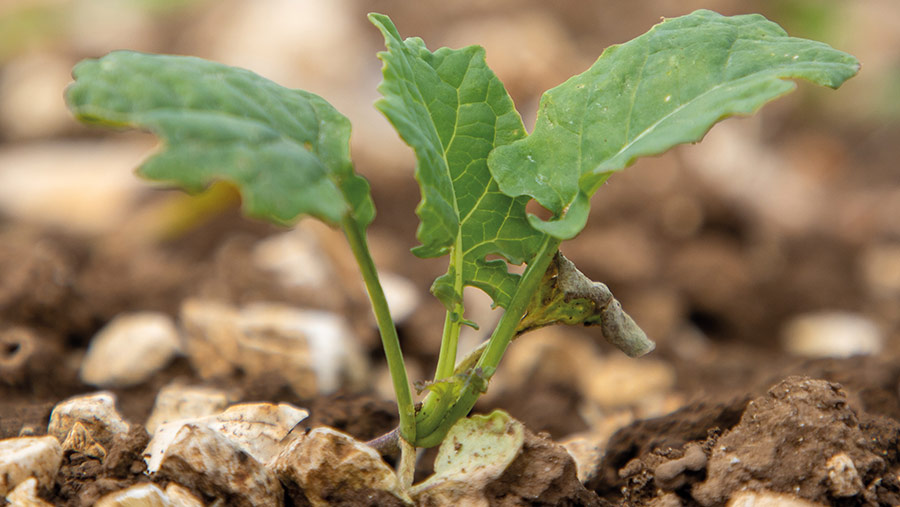Trial looks at veg seed tech to improve OSR establishment
 © Gary Naylor Photography
© Gary Naylor Photography Trials are to be carried out next season on whether primed seed could help oilseed rape growers produce crops that are better able to cope with the adult cabbage stem flea beetle threat.
See also: How the YEN milling wheat champion won gold
The thinking is that the benefits seen in priming seed in some vegetable crops could translate to OSR establishment, so crops can grow away from the pest.
What is priming?
Priming is an already proven technique in the vegetable sector where seeds are treated before being shipped on farms, resulting in quicker and more even germination.
Philip Ayres, technical manager at Elsoms, says priming is a method to achieve even germination and is something the company specialises in for high-value vegetable crops such as carrots, onions and parsnips.
Sugar beet growers will already be familiar with the treatment.
He explains that seeds contain germination inhibitors that are broken down according to environmental conditions. Seeds within a batch will naturally be at different stages.
“So if you plant any unprimed seed, some may germinate within one or two days and others can take up to 28 days. Priming takes out this variability and they all emerge at the same time.”
Mr Ayres explains that the process uses moisture and heat to get seed to the point of being ready to germinate and then cooling it to halt the progress. Primed seed can be stored for six to eight months.
Seed is effectively ready to go. “Once drilled and given a small amount of moisture, you get a very vigorous and even germination,” he says.
The benefits
In vegetable crops, it helps even up crops and avoids gaps. Gaps allow weeds to get established and they also affect quality.
For example, cauliflowers next to the gap will become oversized product, because there is less competition for nutrients and light. Primed seed produces a more even crop with similar-sized cauliflowers.
Priming is especially useful in difficult-to-germinate crops such as parsnips, he adds.
For oilseed rape, the hope is that the treatment will enable crops to get away a few days earlier and achieve a more rapid establishment.
This could prove useful in helping to reduce the threat from adult cabbage stem flea beetles.
Openfield is partnering with Elsoms, with trials being planned for this coming season.
Duncan Durno, Openfield’s arable technical manager, says the aim is to see if it offers these benefits when drilled on farm.
“We know the technology works and is used in some higher-value crops and vegetable crops giving a more rapid and even establishment. We are looking to see if these benefits will transfer to oilseed rape.”
If it does work and helps crops get away from cabbage stem flea beetle, the next question to address is, does this transfer into an economic benefit for the grower?
This coming season, Openfield is carrying out a number large-scale field trials to assess it at the farm level, to see if it improves crop establishment in a farm situation and evaluate any benefits seen.
Other advantages
There could be other benefits to priming. Mr Ayres says having a more even crop can help simplify management, as the plants are at the same growth stage.
OSR crops will cover the ground quicker to suppress weeds and more rapid establishment means more biomass to intercept sunlight.
Finally, Mr Ayres says priming can help in less-than-ideal conditions, for example if it dries out after drilling. Primed seeds require less moisture to germinate.
“You get better germination than with unprimed seed.”

